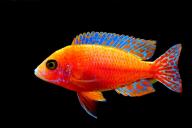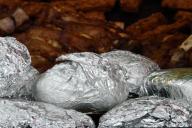A team of researchers have conducted a study challenging the belief that chickens, specifically roosters, have limited cognitive abilities.
The experiment utilized a modified "Mark Test," a common method for testing self-recognition, involving placing a colored mark on the rooster's head that it can only see in a mirror.
The researchers aimed to determine if roosters could recognize themselves in a mirror, a behavior often associated with higher cognitive abilities.

How it was tested
During the test, roosters were observed for their reaction to a mirror in the presence of both a conspecific (another rooster) and a projected image of a bird of prey.
The test results indicated that the roosters emitted more alarm calls when confronted with both the conspecific and the bird of prey, demonstrating a recognition of the potential threat.
Interestingly, when a mirror was introduced, the roosters emitted fewer alarm calls, suggesting a nuanced response that implied they did not mistake their reflection for another rooster but possibly recognized themselves.
The specialists propose that conducting self-recognition tests in an ecologically relevant context, such as responding to a predator, might provide more reliable results compared to traditional methods.
This experiment challenges previous assumptions about the cognitive capabilities of chickens, specifically roosters, shedding light on their potential for self-recognition.













